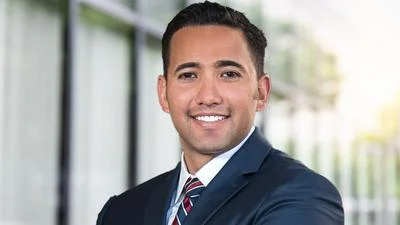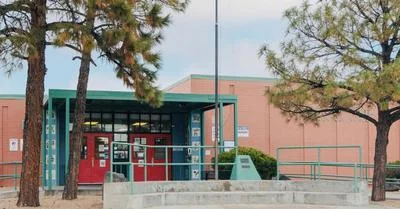Over 80 years ago, the U.S. removed the Gila Apache from the Office of Indian Affairs’ Indian Tribes list despite being recognized as a federal tribe for nearly nine decades. Today, the tribe has reclaimed their Gileño and Mimbreño identity in their language as Chíhéne Nde. Ruben Leyva, a Chíhéne historian and scholar, and Ph.D. student in the Department of Native American Studies, is working to ensure that they regain their sovereignty.
Leyva will share his story on Feb. 9 as part of The Gila Wilderness: Before and Beyond, a centennial celebration in honor of the Gila and the Indigenous ancestral homeland that the wilderness encompasses across its 500,000 acres. This is bittersweet commemoration for Leyva and his people as this effort displaced many Chíhéne from their homes.
As a Gila Apache, Leyva’s presentation, “Apache Homelands and the Gila Wilderness,” will explore the Chíhéne’s connection to the Gila [Chi’laa], and the essential role the Wilderness serves in defining their identity, culture, and community.
“By 1877, the government defaulted on its promises of a Gila Apache Indian Reservation by dissolving the Southern Apache Indian Agency and transferring Gila lands in reserve to the public domain on Jan. 30, 1882," said Leyva.
“The Gila National Forest and Wilderness, Cibola National Forest, water reclamation projects on the Rio Grande River, and the mining at Santa Rita are examples of government policy and commercialism resulting in the expropriation of water and forest lands," Leyva said. "These development projects destroyed some of the tribe’s family farms.”
Federal acknowledgment will provide opportunities such as the “assistance and resources necessary to address disparities in health, education, rights to religious freedom, and protection of sacred sites," Leyva said.
“The Chíhéne Nde Nation filed with the Department of the Interior's Office of Federal Acknowledgment (OFA) on Jan. 4, 2024, to be re-acknowledged as a U.S. tribe," he said. "The nation seeks to be re-acknowledged through the OFA process to strengthen the sacred bond between Chíhéne communities and their homeland in southwest New Mexico. Formal acknowledgment will allow the tribe to rebuild its political, social, and land-based relationship with the U.S. government.”
Leyva’s expertise will offer a unique lens to his presentation, which he hopes will help raise awareness and understanding of his people, their connection to the land, and the injustices they have faced.
In recognition of the 100th anniversary of the Aldo Leopold Wilderness, organizations throughout the state are coming together to honor its rich natural and cultural heritage in a months-long celebration.
Leyva's presentation will be conducted via Zoom on Friday, Feb. 9 at 3 p.m. Contact Michelle Hall Kells at mkells@unm.edu for the Zoom link and passcode. All Zoom lectures will also be recorded and uploaded to the Gila Digital Hub.
The Gila Wilderness Centennial is sponsored in part by the UNM College of Arts & Sciences, the Institute for American Indian Research (IFAIR), the Sustainability Studies program, the R.H. Mallory Center for Community Geography, the Southwest Hispanic Research Institute, the Department of Chicana & Chicano Studies, the Center for Regional Studies, and the Alfonso Ortiz Center for Intercultural Studies. For a full list of sponsors, please click here.
For a full list of events in honor of the Gila Wilderness Centennial, visit GilaWildernessCentennial.wordpress.com.









